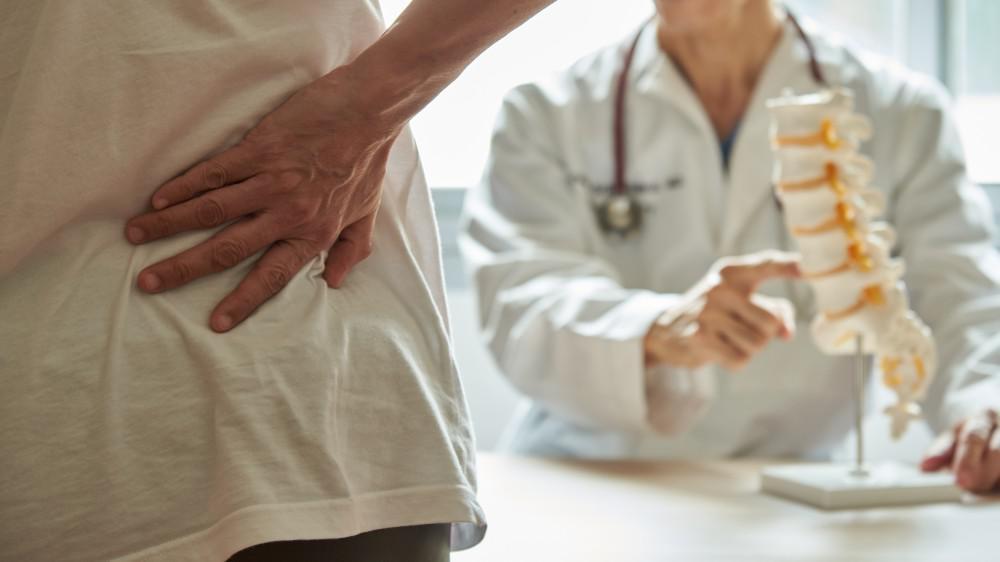About 2% of people suffer from herniated discs each year, making them a relatively common cause of spine pain — especially in the lower back and neck, the two most mobile areas of your spine.
In addition to localized pain, herniated discs can cause pain, numbness, weakness, and other symptoms in your arms and legs, too.
Prompt treatment for herniated discs is key for relieving current symptoms and for preventing those symptoms from getting worse.
At his practice in Roseville, Minnesota, board-certified neurosurgeon David Chang, MD-PhD, DABNS, offers several treatment options for herniated discs, including spinal fusion. Here’s how to tell if spinal fusion is a good choice for you or if another treatment is a better option.
Quick facts about herniated discs
Discs are spongy dividers that separate pairs of bones (vertebrae) in your spine. Each disc acts like a shock absorber to protect your spine from damage, while also providing a small amount of space between the vertebrae.
This space provides enough room for nerves to exit your spinal column on their way to every other part of your body.
Normally, the margins of a disc are entirely contained within the borders of the vertebrae. You can think of it like a sandwich in which all the ingredients are contained within the two pieces of bread.
Slipped discs
Sometimes, though, a disc slips out of its normal position, extending over the edge of the vertebrae on either side.
Not surprisingly, the slipped (or herniated) disc irritates the tissues it’s pressing against, causing inflammation and swelling. That inflammation compresses the nerves as they exit the spine, and sometimes the disc itself can compress the nerve.
When a nerve is compressed or pinched where it exits the spine, you can experience symptoms not only in that local area, but anywhere along the nerve path. That’s why people with herniated discs can experience pain or tingling in their arms, hands, legs, or feet, in addition to discomfort around their spine.
Herniated disc treatment
If a herniated disc isn’t treated, ongoing nerve compression can eventually result in permanent nerve damage, along with a permanent loss of sensation or muscle weakness. Severe untreated disc problems can even lead to a loss of bowel or bladder control or problems walking.
The good news is that there are lots of options for treating herniated discs, depending on the location of the disc, the severity of your symptoms, and other factors.
Except in the most severe cases, Dr. Chang typically recommends a conservative approach to start, with therapies like:
- Activity modification
- Physical therapy
- Gentle stretching
- Lifestyle changes
- Oral anti-inflammatory and pain medications
- Anti-inflammatory injections
Most patients benefit from a combination of these.
When spinal fusion makes sense
Spinal fusion is another option for treating herniated discs, but Dr. Chang usually recommends spinal fusion only for more severe disc problems or when the conservative approaches listed above don’t work.
For instance, some patients (especially older men and women) may develop instability in an area of their spine that can lead to recurrent disc problems. In these patients, spinal fusion can help reduce future problems by immobilizing and stabilizing that affected part of the spine.
In spinal fusion, two vertebrae are joined together with grafts (and sometimes, surgical hardware), preventing movement between the bones and eliminating nerve compression or pinching.
Dr. Chang is skilled in state-of-the-art, minimally invasive surgical techniques for fewer risks and a faster and more comfortable recovery.
Get help for your painful disc problems
Mild herniated discs tend to respond very well to prompt conservative medical treatment. But for patients who suffer from chronic disc-related pain, spinal fusion can be a great choice for providing much-needed relief.
If you have back or neck pain, scheduling an evaluation is the first step toward feeling better. To schedule your visit, call 651-219-7322 or book an appointment online with Dr. Chang today.
